Propaganda: Controlling You with Your Own Myths and Stories
Propaganda does not work in a vacuum. It must have a foundation upon which to build. So it uses and reinforces the myths and stories of your own culture against you, to control your actions.
Propaganda needs a foundation upon which and from which it can work. The messaging of the propagandist has to build on something familiar, something natural within you. He cannot try to move you in a direction that is contrary to that which already within you. Propaganda does not work in a vacuum. The work of pre-propaganda is to take what is within you and within the culture of which you are a part and use this to then direct your actions in the way that the propagandist desires. The propagandist will use all of your myths, your stories, your culture, your beliefs against you. He wants you to want to do the things he wants you to do.
“Such an image pushes man to action precisely because it includes all that he feels is good, just and true.”
This is what makes propaganda so pernicious, a form of violence against the person. He is using as his material things that already exist within you to control and manipulate you. By obeying the propagandist, you think you are doing something good. But you are being used. You are being alienated from any organic relationship to your owns stories, myths and beliefs. With that natural connection to your own stories now severed, they are returned to you abstracted, rationalized and technologized, part of the mass messaging system designed to motivate you to serve the technological society and the state apparatus which governs it. The thoughts you think are your own are not. They are being used against you. And once subjected to it long enough, you will no longer be able to tell which thoughts are organic and which are propaganda. You give yourself over to them because it is easier. And if done well, these are the stories you want to believe about yourself anyways. American propaganda, thus, has to be American in its formulation, evoking American myths and symbols.
“Without giving a metaphysical analysis of the myth, we will mention the great myths that have been created by various propagandists: the myth of race, of the proletariat, of the Führer, of the communist society, of productivity.”
By listing these things as “myth” he is not saying that they are not real, but that these stories have “mythic power.” They are archetypes buried within the collective psyche of the people that are then taken and manipulated by the propagandist, given a content and an application that will direct you towards the action chosen for you by the propagandist.
“Eventually the myth takes possession of a man’s mind so completely that his life is consecrated by it.”
This reliance on myth is a particular feature of American propaganda. In many ways, much of the narrative battle in the United States is over who interprets those myths and how they should be interpreted. But they are almost always, in the era of the technological society, being used for some propaganda objective, even when competing with each other. And even within the scope of this narrative competition, the various differing messages battling things out all must be seen to be capturing essential American values specifically, and western values more broadly.
All the work of myth building is done in the pre-propaganda “phase” — although it is not as if you ever pass from this stage to leave it behind: it is ongoing, all encompassing and ever-present — through the panoply of various means, media, methods and forms. Television. Movies. Radio. Schooling. Festivals and celebrations like Independence Day on the fourth of July. Official press releases. All of them together evoke a broad sense of “what it means to be an American.” The average person will be so inundated with propaganda messaging their entire life that their ability to sort out what is real, organic and grounded from what is a creation of the totalizing propaganda machine is almost impossible.
Coming to this awareness, you are probably safer to assume that most of the thoughts and feelings you have about yourself as an American are the result of propaganda. You were made into an American. The idea that one has a natural bond with 350,000,000 other people strains credulity. People will hate to admit this to themselves, but those who say that America is an idea are mostly correct. I wish it were otherwise, but I know how propaganda works, I know what the most likely scenario is: you are a product of propaganda. Yet another example of the woke being more correct.
What this pre-propaganda does is make you ready for that moment when you will be needed for activation.
“The preparatory work leads only to man’s readiness. Once he is ready, he can be effectively mobilized.”
At the time when Ellul wrote, the phenomenon of propaganda had not yet fully metastasized. It was possible to live outside its grip. We are probably now a full three or four generations into a society that has grown up within the context of a full onslaught of mass media. Early on in the growth of propaganda, the propagandist had to be more careful to play to the basic mythic structure which pre-existed his work. Today, propaganda itself now almost fully shapes the mythic ground upon which the propagandist builds. But it must still be understood that we are not blank slates in this regard and that even in this context there are limits that the propagandist must respect.
“A reflex or myth cannot be created out of nothing, as if the individual were neutral, an empty ground on which anything could be built.”
And:
“The propagandist cannot go contrary to what is in an individual.”
The propagandist must know the people he is trying to influence intimately. Additionally, he must never attack a direct, durable opinion, an accepted cliché or a fixed pattern of thinking. But because there is no connection between thought and action, it is not actually necessary to try to convince someone they are wrong and you are right. What is better is to constantly take the things he is sure he knows and place them into an ambiguous context. When you see people trying to add “complexity” or “nuance” to established opinions, you know that the work of propaganda is being done. We see this regularly in conservative Christian settings when leaders attempt to shift the actions of congregations. They will try on the one hand to assure you that they are completely orthodox in their views on something like homosexuality, but they will introduce layers of nuance that are meant to change how you treat or interact with or handle pastorally those who are gay. New pastoral models will be introduced. These will try to draw on existing Christian values to justify them. Then, once you are in close proximity to homosexuals in your fellowships on a regular basis without the need for repentance and change, slowly your opinions will change to adapt to the new actions in which you have been encouraged to participate. You take existing opinions, cloak them in ambiguity and by doing so mobilize the propagandee for action. They must subvert the Christian faith, because challenging it head on will not have any effect:
“Propaganda cannot create something out of nothing. It must attach itself to a feeling, an idea, it must build on a foundation that is already present in the individual.”
This is why, for example, when talking about Christians and mass immigration, that they lean on feelings of compassion, evoke Biblical notions of the treatment of the stranger, and lean into a story like the Good Samaritan. All of these torque and twist and add layers of nuance and complexity to thoughts and feelings already within the person, activating them towards certain political actions. They become difficult to resist, because you have to unwind all of these layers that have been added to core ideas and beliefs that you already hold.
Finally, the propagandist must concern himself with the most basic needs and urges of mankind. He is looking to tap into deep fears, hungers, needs, wants, aspirations that people have. He wants to take that which is deep in the psyche, a man’s spiritual yearnings, and turn them into a set of concrete actions into which the propagandee can be be directed. His feelings, activated by the propagandist, drive him to act. With this basis, he can push the subject, make him go further, activate him in the ways he wants.
“Propaganda does not aim to elevate man, but to make him serve.”
The propagandist will try to touch your lizard brain, to your basest emotions, the widest held ideas in society.
“Hate, hunger and pride make better levers of propaganda than do love or impartiality.”
It is important to see this relationship between propaganda and the fundamental cultural and social materials present in the society he is trying to shape and mobilize to action.
“Propaganda must be familiar with collective sociological presuppositions, spontaneous myths and broad ideologies…the fundamental psycho-sociological bases on which a whole society rests.”
We must understand that the content of propaganda is rooted in these fundamental structures in society. It works, in many ways, through mimesis and anamnesis, imitation and remembrance.
“No propaganda could succeed by going against the structural elements of society. But propaganda’s main task clearly is the psychological reflection on these structures.”
Because propaganda is a mass phenomenon, working on the person-in-crowds, it is driven to draw on those myths, symbols and beliefs which are the most widely held. At this widest level, propaganda, as an integral component of the technological society, always strives to reinforce its core foundational presuppositions. These are the core ideas that give birth to modernity and the technological society. They are operative to some degree or another anywhere where western culture takes root, but primarily in those places where it was given life. Ellul identifies four key, foundational ideas vital to the technological society and thus to the effective working of propaganda. All propaganda will in some way or another incorporate them.
Man’s aim in life is happiness. You can see these ideas as far back as the American founding in its aspiration for life, liberty and the pursuit of happiness. This is not happiness arising as a byproduct of pursuing other noble ends such as virtue, truth, morality, sacrifice, goodness, and so forth. It is the pursuit of happiness as an end unto itself. “Why shouldn’t I do something that makes me happy?”
Man is naturally good. This is the default for much of western society. We tend to want to look at everyone as a “good person.” The downstream effect of asserting that people are not themselves flawed or fallen, is that it essentially eliminates the moral problem. If there is nothing fundamentally wrong with you, then all the problems are “out there.” They just need a “solution.” Whether it is a society wide problem or that you are “broken,” all that is needed is the right fix, the right solution and everything will get repaired and you can move on to pursue happiness unhindered. The propagandist, who, you remember, includes the product advertiser, is ready at hand with many such solutions.
History develops in endless progress. Basically, we expect that the line will always go up, science will always be making advances, technology will always be improving. We as a people are better persons than our forbearers. This idea of “progress” is the basic frame for our reality. It is unquestioned. Its reality. Its necessity. It is a cosmological system which explains all things, that is, the theory of evolution. You cannot be on the right side of history unless you assume that history is unfolding in endless progress. When your primary worry over DEI policies is that it undermines technological innovation, you are operating out of a frame which assumes that endless progress is possible as long as the right conditions are met. In this case, as long as we hire the best and brightest, progress will continue unimpeded. Any kind of “futurist” politics assumes this posture as a presupposition. People want to believe things can and will be better and propaganda tells them what they want to hear.
Everything is matter. This does necessarily mean a strict materialist understanding of the world. It does not have to make sense philosophically. But practically, people live their lives and think about problems and proffer solutions as if there is no supernatural divine being out there. If progress is going to happen, it is up to us to make it happen. Additionally, all of the needs which we have in life can be met materially, through our jobs, through consumer products, technical solutions, therapeutic approaches, chemical interventions, and, of course, politics. Propaganda reinforces the materiality of the world, always driving us to material solutions.
From these basic presuppositions, our society at its broadest, that is, at the level of “the West,” then forms a series of powerful myths, that of Science and History. They myth of science is that the world can be fully known through the application of the scientific method. Everything can be known and it can be known fully and with a kind of objective certainty. We can understand everything. Alongside of this, the myth of history is that human beings are at the centre of events and that these events have a directionality which move them always “forward.” From this myth, of course, the grand systems of Hegelian and Marxist dialectics are built, as is the notion of evolutionary biology. These are very, very powerful ideas in our culture, its core mythic structure.
Upon these, Ellul argues, a series of fundamental derivative myths or orientations are built. First is the myth of Work. Modernity fundamentally transformed man’s relationship with work. Prior to the modern era, people worked hard when they needed to, but it was always seen, at least in the Christian west, as part of the judgement of God for the sinfulness of mankind. But in the grip of History and the idea of Progress, with man at the centre of things, Work takes on a kind of soteriological emphasis. With hard work you get ahead. With hard work you build the future. Hard work is what makes Progress happen. With the society wide introduction of machines during the industrial revolution, work becomes mechanized. Man must keep up with the machines. He must be ever more productive, ever more efficient. “Arbeit macht frei,” “Work will set you free” is the chilling mantra of the modern era. It was glossed over with religious language, embracing the older monastic discipline of “ora et labora,” “pray and work.” Except in this new material world, there is often a lot more work than there is prayer. Weber’s “Protestant work ethic” is a thing, but again, it was a people in the grip in a new set of emerging myths and values, of which a significant part is that Work itself had a kind of salvific force.
There is the myth of Happiness, that this should be the goal of one’s life. There is the myth of the Nation, that people can be bound together in great masses, across great distances with people who are, for all intents and purposes, strangers to you. But with the promulgation of this myth, society could be scaled up, greater resources and wealth harnessed, and manpower could be gathered for great projects and terrible technological wars. The myth of the Nation requires that you be stripped of your natural, local language, with the richness of its dialect, to be superseded by a chirographic unified language imposed on all at the scale of the nation.
In a world that biases itself towards the future, towards progress, to the new and the improved, it is only natural that it would elevate Youth and youthfulness to mythological levels. We want to be forever young. All of our images of beauty, strength and vitality impress upon us the ideal and the beauty of Youth. We have embraced technical rationality. Gone is our reverence for age and wisdom and the authority they used to bring. Instead, we want the advice of clever, energetic, hard working youths. We all live within the Alphaville song, “Forever Young.”
Because of this emphasis on both Youth and History and Progress, we hunger for the Hero. We crave Hero stories. Not that they didn’t in the past. But ours is an almost manic need for the Hero. We want the Hero to seize the reigns of power and make all things great. Again. Without the Hero, History cannot be realized and we cannot enter into the better future that we know Progress has in store for us.
It is vital for us to understand this about propaganda. If you want any mass message to take root, it must evoke these core presuppositions and myths of modernity, western modernity.
“Propaganda is forced to build on these presuppositions and to express these myths, for without them nobody would listen to it.
And as you may have noticed, much of the mythology of the modern, western technological society is fundamentally liberal in its orientation. In this sense, truly conservative, or traditional, or even Christian propaganda is not a thing. If Christians or conservatives want to use the methods of mass communication and the propagandistic methods of mobilizing people, it must do so in a way that evokes the liberal, enlightenment myths and impulses at the core of modern western society.
“A propaganda that stresses virtue over happiness and presents man’s future as one dominated by austerity and contemplation would have no audience at all. A propaganda that questions progress or work would arouse disdain and reach nobody.”
Ellul continues, hammering this point home:
“Propaganda must also follow the general direction of evolution, which includes the belief in progress.”
The thing is, visions of the past, evoking the good old days or the value of tradition have no political value. Only the emphasis on the future creates the justification for political and social action. Only when you are building for a better future, evoking the idea of the possibilities of the future, can you then impel the individual to act. Nostalgia induces lethargy. A focus on the future gives justification for action. The preserving of traditions is nothing compared to the necessity of building a better tomorrow.
And once the processes of propaganda are at work and have created the context of the mass, centralized society, everything must then operate at this higher level. Anything that emphasizes the local over the national is seen as a step backwards.
“Where centralization does exist, no propaganda can be made against it. Federalism (true federalism, which is opposed to national centralism) can never succeed because it is a challenge both to the national myth and the myth of progress; every reduction, whether to a work unit or an administrative unit is seen as regression.”
And if the nation state is transcended by global realities, the impulse towards globalization sees any assertion of state sovereignty as a form of regression, an act in defiance of history and progress. It must be understood that this messaging works because the myths are rooted deeply within people. They want progress. They want to be “on the right side of history.”
For this reason, all politics in the West, if it wishes to mobilize the masses through propaganda, must be some variation of liberal politics. Because of the propagandistic necessity of the technological society, any politics that cannot express itself through propaganda gains no purchase in the mind of the public. Thus, unless a politics can ground itself in the mythology of liberalism, it will go no where and will have no ability to use propaganda to mobilize the people on its behalf.
“The political Left is respectable; the Right has to justify itself before the ideology of the Left (in which the Rightist also participates). All propaganda…must contain…and evoke…the principle elements of the ideology of the Left in order to be accepted.”
Let me use a recent example from the world of managerial Christianity to illustrate this point. Here is a tweet from Josh Howerton, the Senior Pastor at Lakepointe Church in Dallas, Texas. He is working to come to grips with the idea that the world is increasingly hostile to the church and to Christians. He tweets out a message outlining a new “missiology.” What does that mean? What he is in effect trying to do is reassure people that the church is going to keep doing “missions.” The church is going to keep growing and he has an action plan to make that happen, even in a hostile environment. The church must go forward. It must keep growing. They are going to pivot from their current plan to a new plan that accounts for the new circumstances. It has nine points. Within them, he reassures his people that this whole thing will be fun. It’s positive. It’s forward looking. It is growth oriented. He evokes words, images and feelings that draw on these core western myths and presuppositions.
But then, a little later, Josh quote tweets his own tweet, perhaps feeling some worry that the message was not positive and forward looking enough. So he then highlights three words to frame what he sees is happening and what needs to happen: Revival, Reformation and Resurgence. All of these suggest a bright positive future. The words he did not use were ones like: persecution, sacrifice, struggle.
This is a large mega-church with six campuses. It is a mass organization and every worship service is a mass event. I expect that it is run using the best management practices. It is a technological church and it’s driven forward and the people are bound together using the techniques of propaganda and administrative science. You can see this in the messaging. It keys into the core myths and presuppositions of the technological society. In spite of the language used — remember that propaganda is not about changing how you think — it is an enterprise built on liberal values, the same values of modernity, the same values as the business world and the administrative state. It allows you to keep a veneer of language that seems theologically conservative and Biblical, while at the same time all of your actions are in line with the foundational core ideas of the technological society and its liberal myths. It does not matter whether you are aware that this is what is happening or whether you experience cognitive dissonance over this reality. All that matters is that you act in harmony with the basic impulses of the technological society, adapting yourself to its ways. This happens all while you believe you are keeping to a true Christian faith. But your are integrating yourself into the system. This is how Christian churches become an arm of the state system. This is how propaganda works across the whole of society. This is how the church participates and plays its role in making it all work.
In our next installment we will talk about the role of that the news plays in making you vulnerable to propaganda.


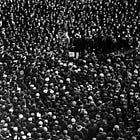



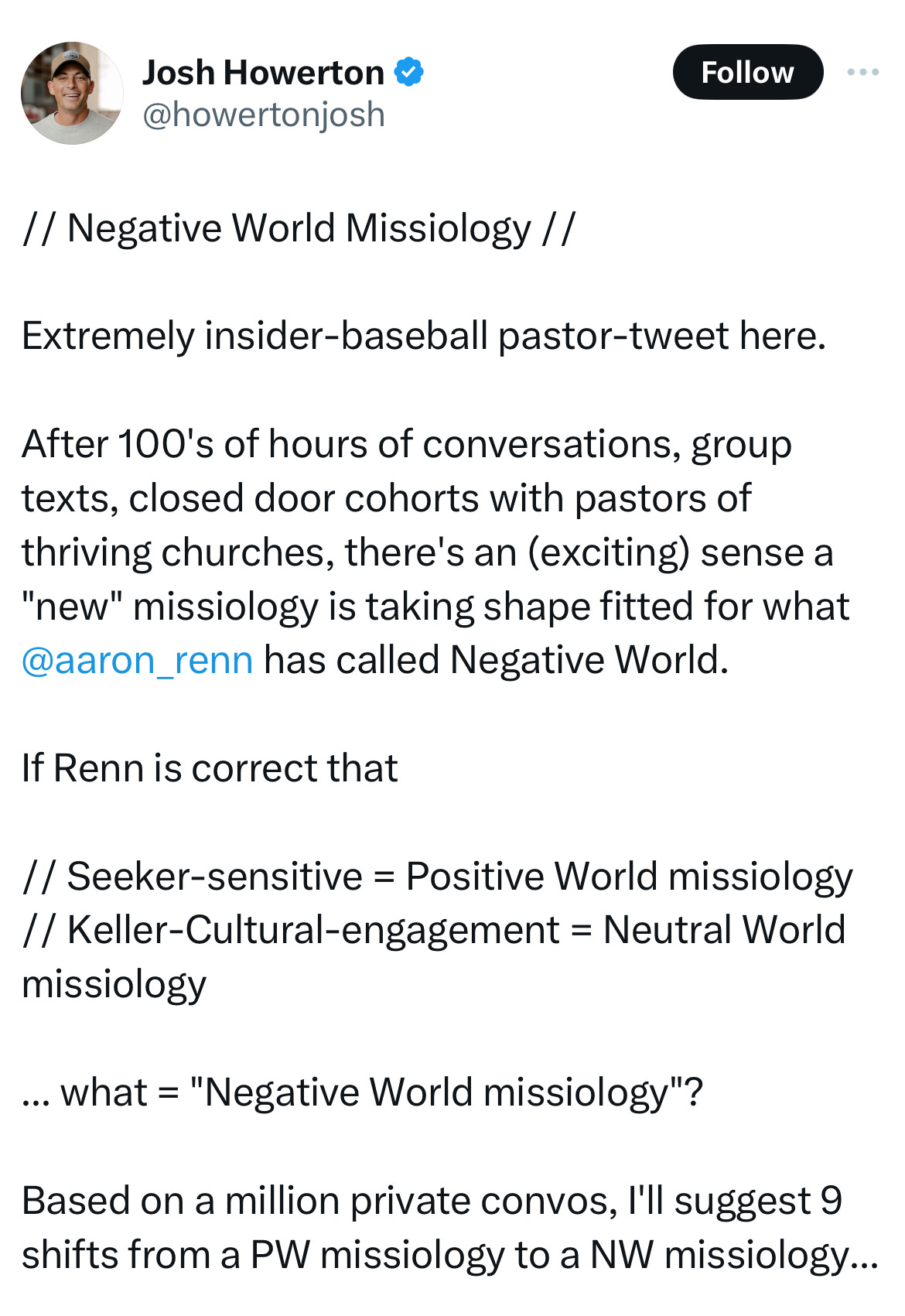
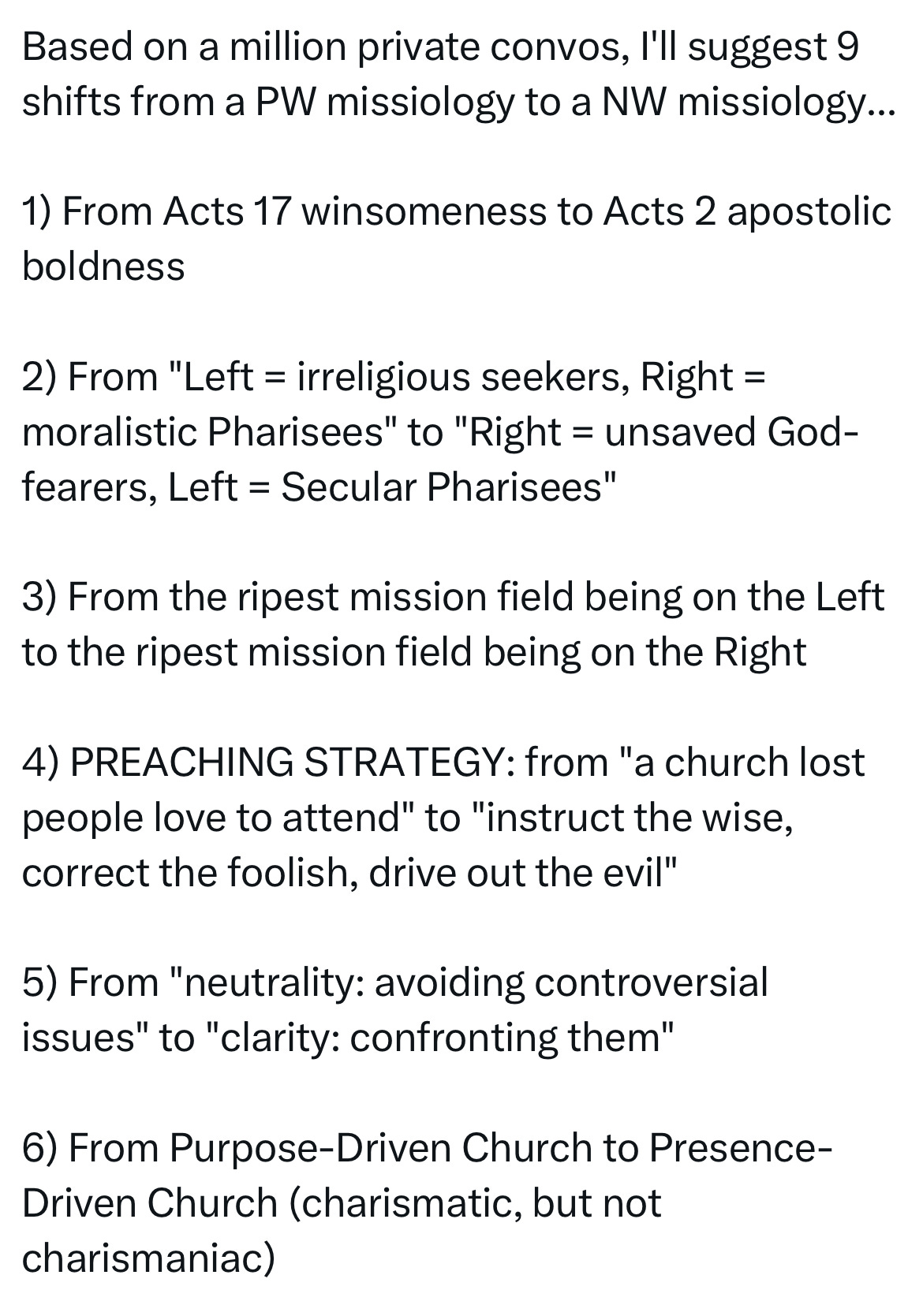
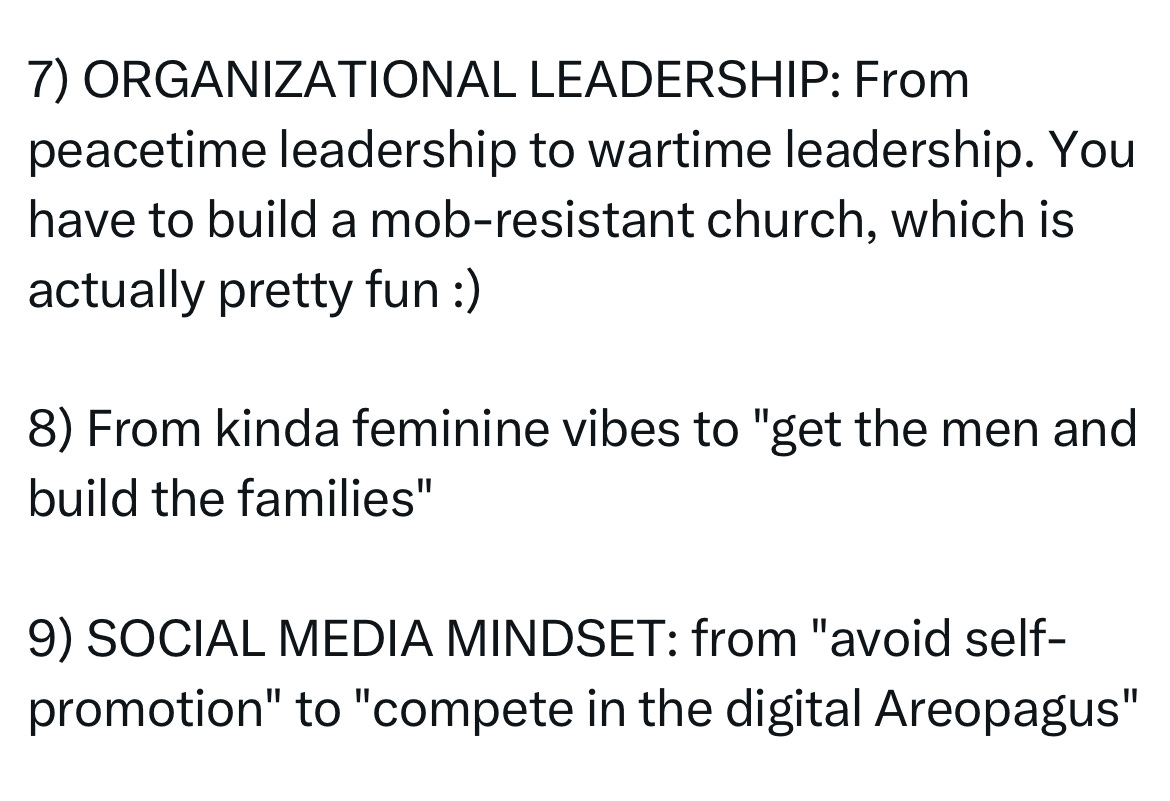
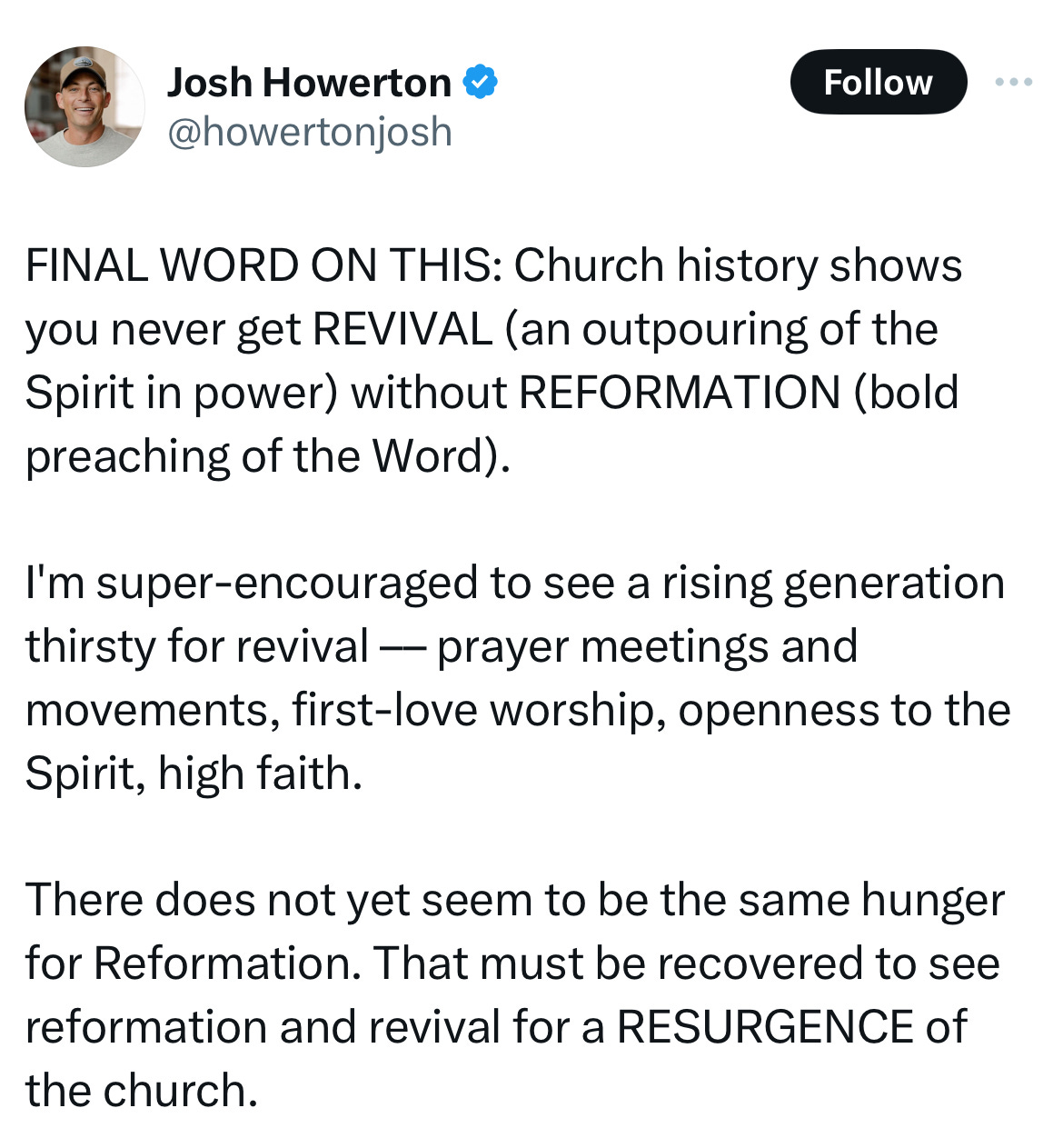

Thank you once again for another fascinating installment in your series on propaganda.
Unless there is something I have misinterpreted, I come away from reading this with the understanding that EVERYTHING is propaganda from the progressive left to the MAGA right (where I locate myself) to Christian revivalists and even every notion I have ever had about what it means to be an American (the founding myths).
It left me with the distinct sensation of floating in the deepest depths of the blackest void of outer space.
I reviewed it again and found that there might be an exception in the direction of propagandist travel coming from the corner from which I orient myself. MAGA is anti-globalist. Jordan Peterson stresses virtue over happiness. Tucker Carlson evokes the value of tradition as well as the local over the national.
Are there carve outs for some ambitions of the MAGA movement that you would not consider propaganda such as the diminishment of the administrative state and the resistance of war abroad?
Or, to fully embrace what you are saying, must I continue my untethered drift into nothingness? After all, propaganda doesn't work in a vacuum.